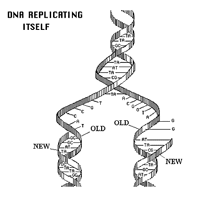This thing with my Dad being in the hospital. I haven’t talked about it much, mostly because I didn’t want to jinx anything. The further we get toward survival, the better I feel.
Knowing what to do has been the hardest part. Since my brother and I are my father’s next of kin, we have had to navigate a sea of problems, ranging from the medical and legal to the personal and financial. I think we’ve done okay, all things considered.
It’s weird how difficult experiences can be valuable. On the one hand, you wouldn’t voluntarily experience something painful, but while going through it you get a sense of the gravity and meaning that seems to exist under the surface of daily life. When you see a daily parade of shattered families walk through the ICU with fear in their eyes or crying in huddled groups, it makes an impression. The message is: every day that you go about your normal routine, someone somewhere is having their heart ripped out. Suffering is universal, so stop being such a jerk.
The other thing you learn is that everyone needs access to medical care. I don’t advocate any particular plan, but most people don’t plan on being hospitalized. So, if employers are not forced to offer health insurance and people are not required to have health insurance, it stands to reason that many people are taking the risk of serious injury and the subsequent crushing medical debt. Even people with health insurance are often insufficiently covered. How can healthcare be optional in this country? We’re ignoring the problem.
 Life started out with a limited ability to create new versions with significant variation. In the beginning, presumably only a handful of different organisms existed (maybe even an ur-lifeform, or grandfather organism) and these tended to be unicellular with minute amounts of genetic information. As life forms evolved and grew more complex, they
Life started out with a limited ability to create new versions with significant variation. In the beginning, presumably only a handful of different organisms existed (maybe even an ur-lifeform, or grandfather organism) and these tended to be unicellular with minute amounts of genetic information. As life forms evolved and grew more complex, they